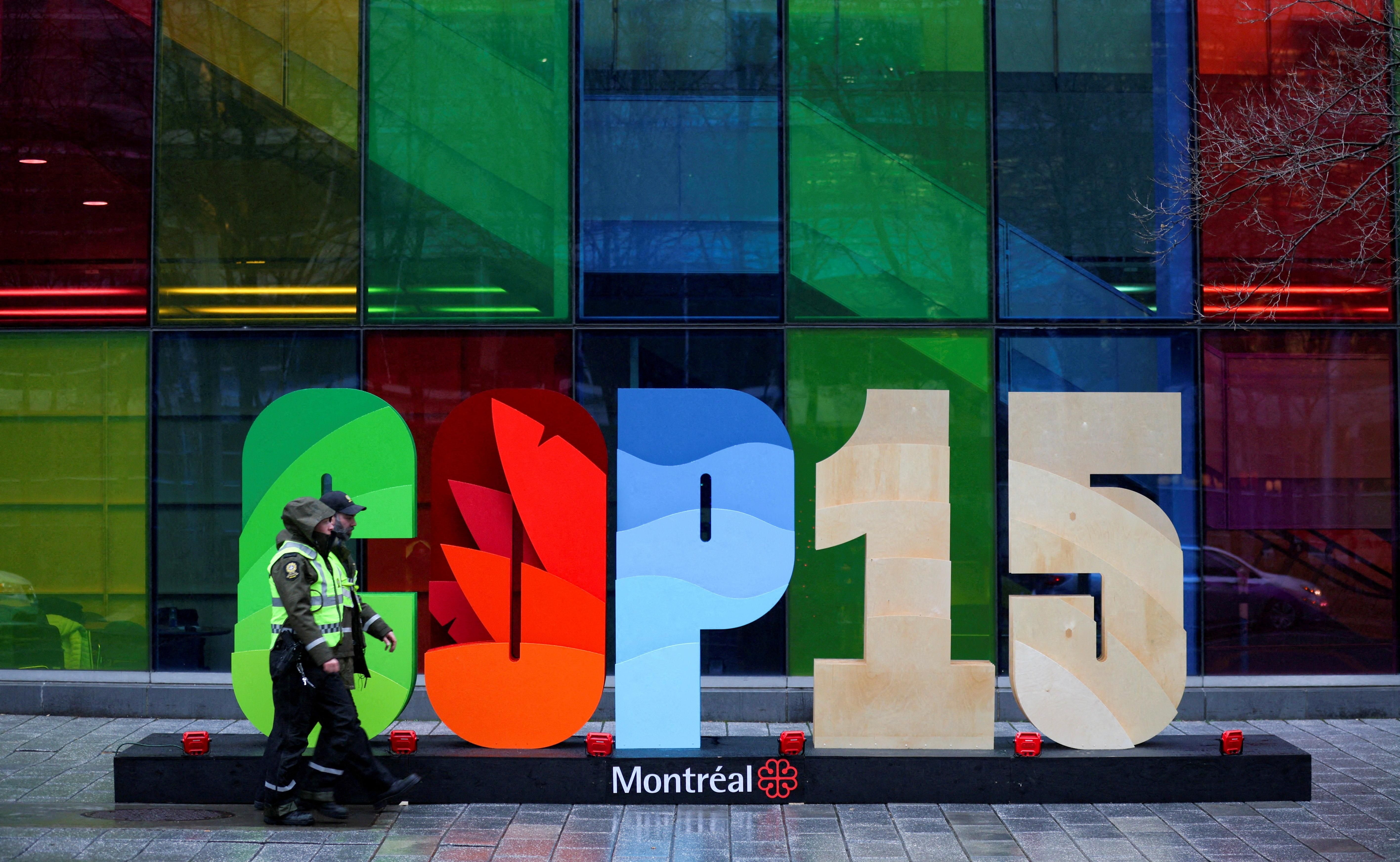The COP15 UN Biodiversity Conference in Montreal, Canada, wrapped up on Monday with a much-awaited agreement to protect 30% of land and water considered “important” for biodiversity by 2030.
Wait, didn't we just have COP27 in Egypt? Yes, but that was about climate change. While climate and biodiversity are not exactly the same thing, they are definitely related.
“Biodiversity and climate are deeply intertwined. It will actually not be possible to solve one crisis without addressing the other,” Ko Barrett, vice chair of the Intergovernmental Panel on Climate Change and senior adviser for climate at NOAA, said during a recent livestream on biodiversity hosted by GZERO in partnership with Suntory.
What’s in the COP15 deal? The 30% commitment — known in COP15 parlance as “30 by 30” — will almost double the current percentage of protected areas on the planet.
That’s nothing to sneeze at, considering we’re on the brink of a sixth mass extinction. The deal concluded a tense two-week negotiation that saw some developing countries walk out halfway through the talks in Montreal.
What's missing? As is often the case with big agreements at UN-sponsored global conferences, quantifiable targets for tracking progress over time — which might encourage some countries to be less ambitious.
Did businesses get what they wanted out of Montreal? Yes and no. (Watch this clip for some specific demands.)
Although the private sector had asked for universal mandatory disclosures on their impacts and dependencies on biodiversity, it’ll be up to individual countries to decide how far they want to go. “That said, disclosures will still ramp up quickly post-COP15,” says Eurasia Group analyst Franck Gbaguidi.
Some are upset that "nature-positive" didn't make it into the final text. We're referring to the movement that urges businesses to make money in a sustainable way that not only protects life on earth but actually reverses the course of its destruction.
On the one hand, its exclusion is "a bummer for those who expected it'd become the nature equivalent of 'net zero' carbon emissions," Gbaguidi explains. On the other, it's "good news for those who thought [nature-positive would be] used by companies to do some greenwashing activities due to the lack of a commonly agreed definition."
The upshot: Although COP15 was a mixed bag, biodiversity is set to become the second environmental priority for governments after climate change.
"Judging by the talks in Montreal, there will be a before and after COP15," says Gbaguidi. "This will materialize in the efforts of the international community to account for biodiversity risks, impacts, and dependencies from now on."
